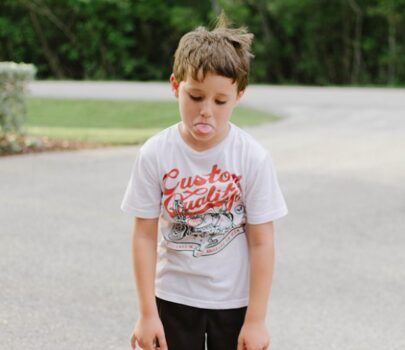This article originally appeared in Macaroni Kid on Sep 21, 2017 by Luanne Starr Rhoades, LCPC, LADC, CCS; Health Affiliates Maine
Question: My son’s friend has ADHD. He often comes to our house to play and sometimes spends the night. He seems not to have much of a filter and says some inappropriate things for his age. He is also impulsive. I get concerned about him using good judgment. I don’t want to discourage the friendship but am not sure how to best talk to my son about what’s appropriate and what’s not when his friend is over. I’ve talked to the parents and they are aware of the issues and have spoken to their son but they have left the parenting up to me when he is at our home. What’s the best way to deal with this when it’s not my kid?
Answer:
This is a bit difficult to answer without knowing the age of the children. I will give you some general interventions which I hope will apply in your situation. I think you have taken an important first step in talking with the parents. In this way you have already communicated your concerns and they have an expectation that you will address what might come up.
Having family ground rules for behavior is good for children. This also means that when kids come to play they are under your rules. When behavior starts to cause problems, review the rules of the house, and the consequences for not following. You can say, “We really like it when you come to play, but we have rules in our house about jumping on the sofa. I need you both to find another activity.” Rules can be “no ‘potty’ talk” “no roughhousing inside” “no backtalk to adults,” and the like. When rules are broken it is important to speak up and to have a number of consequences to fit the situation, like having to play separately for a short period, to having to go home. Sometimes finding out that you mean what you say can make better behavior the next time. Kids thrive with rules and boundaries; ultimately they make them feel safe.
Children with ADHD get lots of negative messages around their behavior which can cause problems with self-esteem. Along with enforcing rules, try to also make a point to reinforce positive behavior. Look for those times to reward positive play by adding extra time to an activity or by giving positive praise. As to your concern about this child’s impulsiveness and judgment; again this can mean very different things at different ages. Adult supervision may be really appropriate for the young ones, with repeated focus on acceptable behavior. Older children need to know to come and talk about behaviors or topics which make them feel uncomfortable.
The most important thing is to be clear about what the expectations are in your home and to follow through when discipline or positive reinforcement as needed. Lastly, sometimes it is appropriate to discourage friendships that you do not feel are right for your child.
Luanne Starr Rhoades, LCPC, LADC, CCS is a professional counselor and the Outpatient Therapy Director at Health Affiliates Maine, a mental health and substance abuse treatment agency serving adults, adolescents, children and families. For more information or if you or someone you know needs help, call us at 877-888-4304 or visit our website healthaffiliatesmaine.com and click on “Referrals.”




